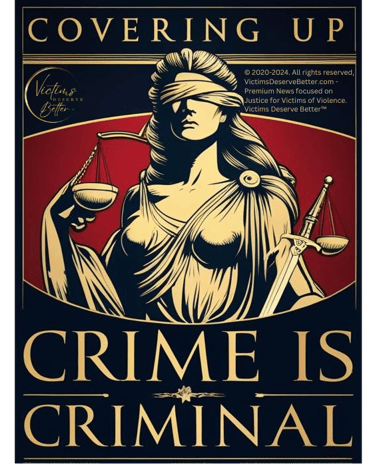Witness Responsibilities to Report Exculpatory Evidence and/or Knowledge:
A witness who has knowledge and/or exculpatory evidence is expected to disclose that information to law enforcement authorities. Failure to do so can result in criminal liability for the witness who fails their responsibility to report exculpatory evidence.
The legal duty to report is especially critical in the case of violence victims, as any failure to report evidence that could support the victim’s case or exonerate an innocent person prevents justice from being served, furthermore failure to report is endangerment of another human being, as it leaves the victim vulnerable, unprotected and even more at risk for further violence.
Failure to Report: Witnesses who have exculpatory knowledge but fail to report it can be charged with obstruction of justice or even perjury, depending on the nature of their involvement. Anyone who deliberately withholds exculpatory evidence to prevent a fair trial or obstruct the vulnerable person’s right to justice and/or protection can and should face stern legal repercussions.
Duty of Disclosure: Individuals are legally obligated to provide any exculpatory evidence or knowledge they may have. This could include anything that may be pertinent evidence or knowledge that could exonerate the accused or evidence that could substantiate the victim’s account of the crime(s).
Conspiracy to Conceal Evidence: When two or more people conspire to conceal exculpatory evidence or interfere with the investigation of a victim’s case, they may face additional charges. Conspiracy charges are particularly serious because they involve collaboration and a concerted effort to thwart justice. Depending on the jurisdiction, conspiracy charges can carry sentences as severe as the crime being covered up; “In for a penny, in for a pound”.
Penalties for Conspiracy: Those who conspire to obstruct justice or conceal evidence/knowledge can face lengthy prison sentences, especially if their actions are deemed to have significantly impacted the outcome of the case or how it has impacted the victim’s ability to seek protection and/or justice. Conspiracy charges can, and often do, escalate the legal penalties for all involved parties.
Number of People Involved in a Conspiracy: In legal terms, a conspiracy can exist as long as there are two or more individuals involved. Even if a small group conspires to conceal evidence, they are all liable for the criminal actions that result. The more people involved in the conspiracy, the higher the potential penalties, as they show a greater degree of coordination and intent to obstruct justice.
What are the Legal Repercussions for Concealing the Truth:
Imprisonment for Concealing Evidence
In some cases, individuals who conspired to conceal evidence or obstruct justice in a rape case have faced lengthy prison sentences. For example, in one case, a group of friends who helped a perpetrator of a violent rape hide the victim’s clothing and prevented police from finding critical evidence were sentenced to substantial prison terms, with some serving up to 10 years for their involvement.
Civil and Criminal Liability for Failure to Act
Beyond criminal charges, those who fail to act when they possess exculpatory evidence can also face civil lawsuits. In some cases, individuals who were directly involved in covering up or hiding evidence have been held liable for the emotional and psychological harm caused to the victim. Civil suits allow for damages to be awarded to victims who were denied justice due to the actions of conspirators.
Murder Charges for Conspiracy to Cover Up?
Yes! There have been cases where a conspiracy to cover up violence against victims has escalated to involve the commission of other crimes, such as attempted murder, homicide, etc. In one infamous case, a group of individuals who helped a rapist avoid capture, ended up committing homicide when they killed a witness who could have exonerated an innocent suspect. The conspirators in this case faced life sentences for both conspiracy and murder.






